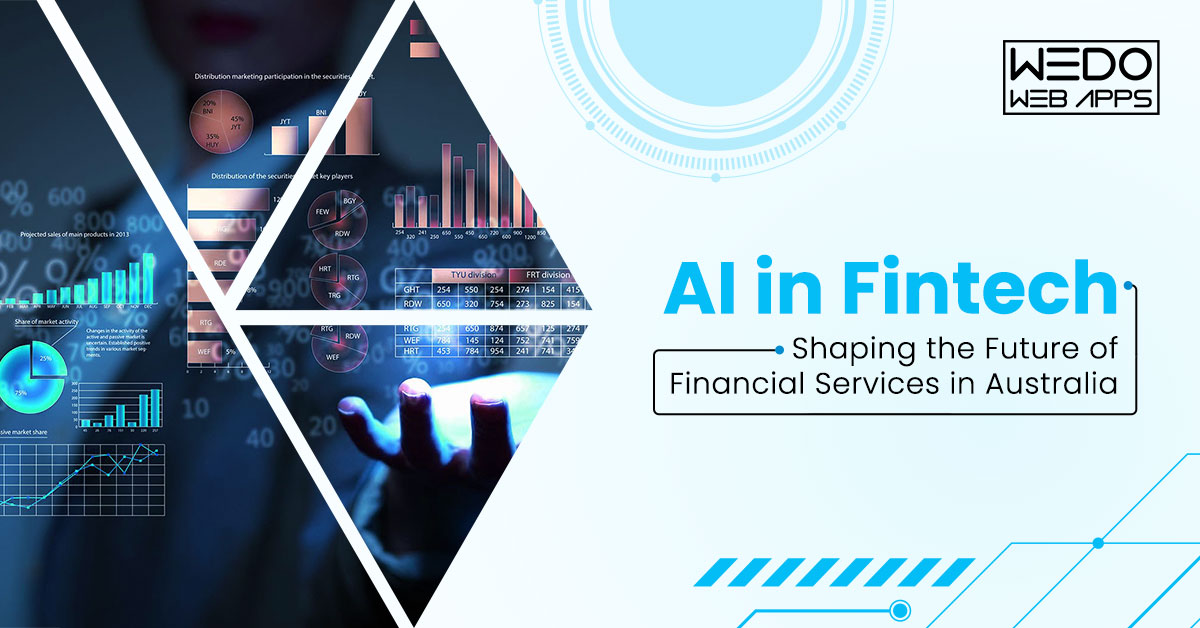Introduction
The intersection of artificial intelligence (AI) and financial technology (fintech) has revolutionized the way financial services are delivered. As AI continues to advance, it is transforming the fintech landscape in Australia and around the world. In this article, we will explore the applications of AI in fintech, discuss the future of AI in the industry, and shed light on the fintech ecosystem in Australia.
1. Understanding AI in Fintech
Artificial intelligence in fintech encompasses the replication of human intelligence in machines, imitating cognitive functions. In the fintech sector, AI is being utilized to enhance decision-making, automate processes, and provide personalized customer experiences.
2. Applications of AI in Fintech
2.1 Chatbots and Virtual Assistants
AI-powered chatbots and virtual assistants are revolutionizing customer support in the fintech industry. These smart assistants can understand natural language, assist with basic inquiries, and provide personalized financial advice, enhancing customer satisfaction and reducing response times.
2.2 Fraud Detection and Security
AI algorithms can analyze vast amounts of financial data to identify patterns and detect fraudulent activities. By monitoring transactional behavior, AI can help prevent fraud, safeguarding customer assets, and maintaining the integrity of financial systems.
2.3 Risk Assessment and Underwriting
AI-based algorithms are improving the accuracy of risk assessment and underwriting processes in lending and insurance. By analyzing various data sources and historical patterns, AI can assess creditworthiness and provide real-time risk evaluations, leading to more informed decisions.
2.4 Robo-advisory Services
Robo-advisory platforms powered by AI provide automated investment advice and portfolio management. These platforms leverage algorithms to assess risk tolerance, financial goals, and market conditions to offer personalized investment strategies at a lower cost than traditional financial advisors.
3. The Future of AI in Fintech
3.1 Enhanced Customer Experience
AI will play a pivotal role in delivering personalized and seamless customer experiences. By leveraging customer data and AI algorithms, fintech companies can anticipate customer needs, provide tailored recommendations, and deliver proactive support with their mobile app development services.
3.2 Advanced Data Analytics
The future of AI in fintech lies in harnessing the power of big data. AI algorithms can analyze vast datasets to uncover valuable insights, improve predictive analytics, and optimize financial decision-making. This data-driven approach will enable fintech companies to offer innovative products and services.
3.3 Automation and Efficiency
AI will continue to drive automation and streamline processes in the fintech industry. By automating repetitive tasks, companies can reduce costs, minimize errors, and allocate resources to more complex activities. This will lead to increased operational efficiency and improved productivity.
4. Fintech Landscape in Australia
4.1 What is Fintech Australia?
Fintechs in Australia is the industry association that represents the fintech ecosystem in the country. It acts as a collective voice, advocating for policy changes, supporting innovation, and fostering collaboration between fintech startups, financial institutions, and government agencies.
4.2 Fintech Services Australia
Australia has witnessed significant growth in the fintech sector, with a wide range of services being offered. These include digital payments, peer-to-peer lending, blockchain solutions, robo-advisory platforms, and regtech (regulatory technology) solutions.
4.3 Fintech Startups Australia
Australia has a vibrant startup ecosystem with numerous fintech companies making their mark. Startups like Afterpay, Zip Co, Airwallex, and Up Bank have gained global recognition for their innovative solutions. These companies have successfully leveraged AI and other technologies to disrupt traditional financial services.
5. The Intersection of AI and Quantum Computing in Fintech
Quantum computing has the potential to revolutionize the fintech industry, particularly in conjunction with AI. Quantum computing harnesses the principles of quantum mechanics to perform complex computations at an exponential speed compared to traditional computers.
5.1 AI and Quantum Computing Synergy
The combination of AI and quantum computing can unlock new possibilities in data analysis, optimization, and cryptography within the fintech sector. Quantum algorithms can enhance the capabilities of AI models, enabling more accurate predictions and faster processing of vast datasets.
5.2 Advanced Data Analysis
Quantum computing can accelerate data analysis by quickly processing large volumes of financial data. This enables fintech companies to extract valuable insights, identify patterns, and make data-driven decisions with unprecedented speed and accuracy.
5.3 Enhanced Security and Encryption
As fintech services rely on secure transactions and data protection, quantum computing can bolster security measures. Quantum cryptography offers stronger encryption methods that are resistant to quantum attacks, ensuring the integrity and confidentiality of financial transactions.
6. Fintech Australia: Pioneering Innovation
6.1 Supportive Regulatory Environment
Australia has fostered a supportive regulatory environment for fintech innovation. Regulatory sandboxes, open banking initiatives, and government-backed innovation programs have encouraged the growth of fintech startups, attracting both domestic and international players.
6.2 Collaboration between Fintech and Traditional Financial Institutions
Fintech startups in Australia are forging partnerships with traditional financial institutions to drive innovation. By collaborating, they can leverage the expertise and resources of established institutions while bringing cutting-edge technology solutions to the market.
6.3 Fintech Hubs and Accelerators
Australia boasts several fintech hubs and accelerators that provide startups with mentoring, networking opportunities, and access to funding. Hubs such as Stone & Chalk, Tyro Fintech Hub, and Fintech Australia’s Fintech Bridge program serve as catalysts for growth and collaboration within the fintech ecosystem.
Conclusion
The integration of AI into the fintech industry has the potential to reshape the way financial services are delivered. AI-powered applications, such as chatbots, fraud detection systems, and robo-advisory platforms, are already enhancing customer experiences and improving operational efficiency. As AI continues to advance, its synergy with quantum computing promises to unlock even greater possibilities in data analysis, security, and optimization.
In Australia, the fintech sector is thriving, with a vibrant ecosystem of startups, supportive regulations, and collaborative initiatives. Fintech companies in Australia are at the forefront of innovation, leveraging AI and other technologies to disrupt traditional financial services and drive the future of finance.


















 Sharing Project Details
Sharing Project Details Let's have a
call
Let's have a
call Got
Questions? Let’s Chat!
Got
Questions? Let’s Chat!